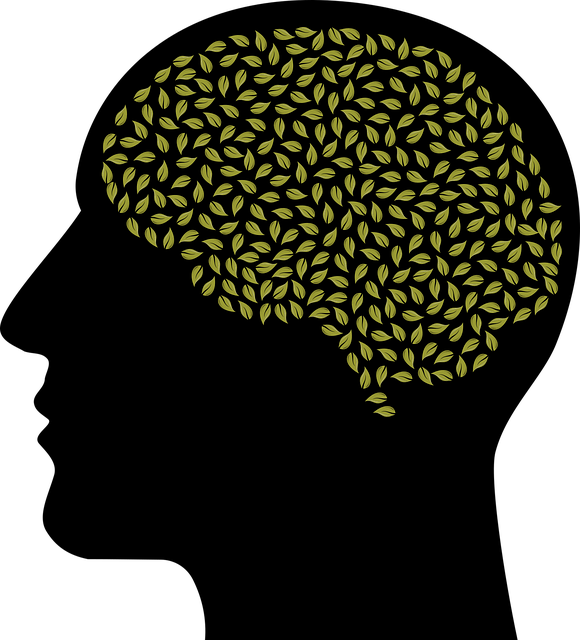Louisville Divorce Therapy focuses on immediate emotional relief and long-term healing for individuals and families facing divorce challenges. Using evidence-based techniques like CBT, mindfulness practices, active listening, cognitive reframing, and cultural sensitivity, therapists create supportive environments to improve communication, develop healthier coping mechanisms, reduce stress, and enhance overall well-being. Mindfulness meditation, confidence-boosting exercises, and effective communication strategies are employed to help clients navigate crises smoothly. Post-crisis intervention ensures ongoing support through regular check-ins and tailored resources for lasting emotional healing.
In the complex landscape of Louisville Divorce Therapy, crisis intervention strategies are vital tools for navigating tumultuous times. This article guides professionals through a structured approach, from recognizing divorce-related crises to implementing effective interventions. We explore key techniques for fostering a supportive environment, identifying subtle signs and triggers, and providing immediate relief. Additionally, we delve into post-intervention follow-up and prevention strategies, offering a comprehensive framework for Louisville therapists to assist couples facing crisis.
- Understanding Crisis Intervention in Louisville Divorce Therapy
- Identifying Signs and Triggers for Divorce-Related Crisis
- Building a Supportive Environment for Effective Intervention
- Key Techniques for Crisis Intervention Strategies
- Post-Intervention Follow-Up and Prevention Measures
Understanding Crisis Intervention in Louisville Divorce Therapy

In Louisville Divorce Therapy, crisis intervention strategies are pivotal tools designed to help individuals and families navigate challenging situations with resilience and hope. When faced with the complexities of divorce, emotional turmoil often reaches its peak, making it crucial for therapists to employ effective interventions. These strategies focus on immediate support and short-term solutions to mitigate acute distress and facilitate a smoother transition towards long-term healing.
Louisville Divorce Therapy emphasizes the importance of understanding each client’s unique crisis context. Therapists utilize evidence-based techniques such as cognitive-behavioral therapy (CBT) and mindfulness practices to assist clients in managing intense emotions, improving communication, and developing healthier coping mechanisms. By integrating stress reduction methods and emotional regulation techniques into crisis intervention, therapists empower individuals to better handle future challenges, ultimately enhancing their overall well-being. Additionally, raising public awareness through campaigns that destigmatize mental health issues can encourage more people to seek help during crises, fostering a supportive community environment in Louisville and beyond.
Identifying Signs and Triggers for Divorce-Related Crisis

Divorce can be a complex and emotionally charged process, often leading to crises for individuals and families. Identifying signs and triggers early on is crucial for effective crisis intervention. In Louisville Divorce Therapy, professionals look out for indicators such as severe emotional distress, sudden changes in behavior, or open discussions about separation. These may include persistent arguments about divorce, expressions of despair, or a complete withdrawal from family and social interactions.
Mindfulness meditation and confidence-boosting exercises can help individuals navigate these crises. Communication strategies, when implemented with care, allow families to express their feelings openly while maintaining respect and understanding. By recognizing these signs early, Louisville Divorce Therapy practitioners can guide individuals towards healthier coping mechanisms, ensuring a more manageable transition during this challenging period.
Building a Supportive Environment for Effective Intervention

Creating a supportive environment is a cornerstone of effective crisis intervention strategies. In Louisville Divorce Therapy settings, fostering an atmosphere of warmth and non-judgement encourages individuals to openly share their experiences and vulnerabilities. This involves active listening, where therapists validate emotions and reflect back what they hear, building trust and encouraging clients to express themselves honestly. The space should also promote a sense of safety, ensuring confidentiality and providing a comfortable environment free from potential triggers.
Mind Over Matter principles can be integrated into this framework by helping individuals reframe their perspectives and gain a sense of control during challenging times. Empathy Building Strategies, such as reflecting emotions and validating experiences, further strengthen the therapeutic bond. By combining these approaches with ongoing Mental Health Awareness initiatives, Louisville Divorce Therapy professionals can create an enabling environment that facilitates meaningful healing and personal growth.
Key Techniques for Crisis Intervention Strategies

In the face of a crisis, whether it’s a personal breakdown, an emotional meltdown, or a mental health emergency, effective intervention strategies can make all the difference. For individuals seeking support, Louisville Divorce Therapy offers valuable techniques to navigate turbulent times. One key approach is active listening, where therapists create a safe and non-judgmental space for clients to express their feelings and thoughts freely. This empathetic engagement fosters trust and encourages open communication, allowing individuals to process their emotions and gain clarity during a crisis.
Additionally, cognitive reframing plays a crucial role in crisis intervention. By identifying and challenging negative thought patterns, therapists help individuals develop a more positive perspective. Encouraging clients to adopt strategies like mindfulness practices and positive thinking can reduce anxiety and promote emotional resilience. Louisville Divorce Therapy’s comprehensive approach considers the intricate interplay between mental health, personal relationships, and overall well-being, aligning with the growing emphasis on public awareness campaigns for mental health issues and the importance of anxiety relief in crisis management.
Post-Intervention Follow-Up and Prevention Measures

After a crisis intervention, the process doesn’t stop there—it’s just the beginning. Effective Louisville divorce therapy emphasizes post-intervention follow-up as a critical component to ensure long-term emotional healing processes and prevent future crises. This includes regular check-ins with clients to assess their well-being and progress, offering additional resources tailored to their needs, and providing support for ongoing stress reduction methods.
Cultural sensitivity in mental healthcare practice plays a significant role here. Therapists must be equipped to address the unique challenges faced by diverse communities, ensuring that follow-up strategies are inclusive and respectful. By integrating these considerations, practitioners can foster a safe space for clients to process their experiences, build resilience, and implement positive changes, ultimately breaking cycles of distress and promoting overall well-being in both individuals and communities.
Louisville Divorce Therapy offers crucial crisis intervention strategies to navigate divorce-related crises effectively. By understanding the signs, building a supportive environment, employing key techniques, and implementing post-intervention follow-up, therapists can foster healing and prevent further escalation. These guidance principles are essential for navigating turbulent times, ensuring clients receive the necessary support during challenging divorce processes.














